IMO’s PPR11 Agrees Guidance on Key Environmental Issues
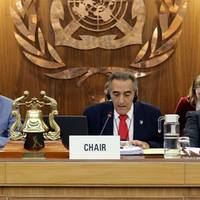
The IMO’s Sub-Committee on Pollution Prevention and Response (PPR 11) agreed new guidance on several key environmental issues.Meeting from February 19 to 23, 2024, the following guidance will now be submitted to the Marine Environment Protection Committee for approval this March (MEPC 81) and October (MEPC 82):• the safe transport of plastic pellets by sea• best practices for cutting black carbon emissions from ships operating in or near the Arctic• reducing risks of use and carriage…
MEPC 80: Action Taken on Range of Environmental Regulations
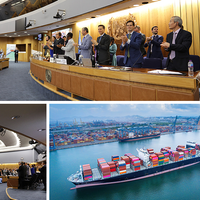
The IMO’s MEPC 80 session adopted the 2023 IMO Strategy on Reduction of GHG Emissions from Ships and advanced other environmental initiatives.The revised IMO GHG Strategy includes an enhanced common ambition to reach net-zero GHG emissions from international shipping close to 2050, a commitment to ensure an uptake of alternative zero and near-zero GHG fuels by 2030, as well as indicative check-points for 2030 and 2040:1. to reduce the total annual GHG emissions from international shipping by at least 20%, striving for 30%, by 2030, compared to 2008; and2.
IMO to Review GHG Strategy and More at MEPC 80
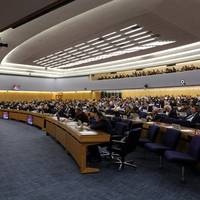
The IMO’s Marine Environment Protection Committee (MEPC) - 80th session will meet at IMO Headquarters in London from July 3-7, and amongst key agenda items, the MEPC 80 session is expected to adopt an upgraded IMO greenhouse gas strategy.The revised IMO GHG Strategy will contain concrete greenhouse gas reduction targets for the sector and is expected to outline a range of technical and economic measures. Negotiations have been ongoing and will continue during the Intersessional Working Group on Reduction of GHG Emissions from Ships (ISWG-GHG 15)…
PPR to Investigate into Scrubbers's Washwater
The Marine Environmental Protection Committee (MEPC) agreed to task its sub-committee on Pollution Prevention and Response (PPR) to look into the discharge from open-looped scrubbers, in particular the environmental impact of the washwater.This was decided at the meeting (MEPC 74) held last week, said a press release from BOMCO.During the meeting, several delegations expressed some fundamental concerns whether a scrubber system could constitute a more favourable treatment of ships equipped with a scrubber system (or Exhaust Gas Cleaning System), compared to ships using compliant fuel.Today, the industry is faced with many new national or regional rules on the water discharges from scrubbers.
Clean Arctic Alliance Warns Arctic Nations
Clean Arctic Alliance participated in a meeting of the International Maritime Organization’s (IMO) Sub-Committee on Pollution Prevention and Response (PPR 6) in London and hailed the progress towards HFO Free Arctic.However, the international NGOs working for a ban on heavy fuel oil (HFO) from Arctic shipping called on Arctic Nations Russia and Canada to step-up to their responsibilities by adding their support for a ban on HFO from use by Arctic shipping, and for Finland, Sweden, Norway, Denmark, Iceland and the United States, who already support the ban, to remain focussed on ensuring it is adopted in 2021, and phased in by 2023.“Earlier this week…
IMO On Track for 2020 Sulphur Cap
The International Maritime Organization (IMO) made substantial progress towards the Organization’s final preparations for the new global Sulphur regulation which enters into force on 1 January 2020.A release from Danish Maritime Authority (DMA) pointed out that IMO's sub-committee on Pollution Prevention and Response met in London this week to discuss a number of issues related to the marine environment.Following up on previous decisions by the IMO concerning the entry into force on 1 January 2020 of the new 0.50 per cent limit of Sulphur content in marine fuels, the Member States provisionally agreed on a number of measures for consistent…
IMO Readies for Sulphur 2020 Limit
International Maritime Organization (IMO)'s Sub-Committee on Pollution Prevention and Response (PPR) meets this week (18-22 February) at IMO headquarters.According to the UN body, the meeting will focus on finalizing draft Guidelines on consistent implementation of the 0.50% sulphur limit under MARPOL Annex VI. The aim of the Guidelines is to assist in the preparations for and uniform implementation of the lower limit for sulphur content in ships’ fuel oil, which will take effect on 1 January 2020 and will have a significant beneficial impact on human health and the environment."The meeting will also consider draft amendments to MARPOL…
Clean Arctic Alliance Thrusts on HFO Ban
As a meeting of the International Maritime Organization’s (IMO) Sub-Committee on Pollution Prevention and Response (PPR 6) opened yesterday in London, the Clean Arctic Alliance called on Member States to remain focussed to the goal of developing a ban on the use and carriage of heavy fuel oil (HFO) by shipping in the Arctic.“While IMO delegates gather to discuss ways to mitigate the impacts of heavy fuel oil (HFO) – the dirtiest of ships’ fuels – on Arctic ecosystems, IMO member states must keep their sights firmly on the need for a ban, especially in light of recent revelations from the IPCC on the urgent need to limiting the effects of climate change on the Arctic region”…
IBIA Promotes Sensible Approach to Sulphur Testing
International Bunker Industry Association (IBIA) is continuing its efforts for IMO to adopt guidelines ahead of 2020 that will promote a uniform approach to fuel oil testing and reporting protocol for the verification of compliance with MARPOL Annex VI sulphur limits. Earlier this year, IBIA submitted two papers to the 5th session of the IMO’s Sub-Committee on Pollution Prevention and Response (PPR 5) proposing a way ahead on sulphur testing and compliance verification. Both papers will be forwarded to a PPR intersessional working group (ISWG) taking place at the IMO in July. In PPR 5/12/1, IBIA proposes establishing appropriate guidelines for verifying the sulphur content in fuel oil samples taken from ships’ fuel systems (in-use samples).
Stopping the Spread of Invasive Species
Non-native species can be spread from ocean to ocean via ship. They may be carried via ballast water or attach to the hulls and other parts of ships, hitching a ride across the oceans. International Maritime Organization (IMO) is addressing this problem through the Ballast Water Management (BWM) Convention, which entered into force in September 2017 and requires ships to manage their ballast water to limit the spread of aquatic organisms. Also, IMO’s Biofouling Guidelines address bioinvasions via ships’ hulls. The joint International Council for the Exploration of the Sea (ICES), Intergovernmental Oceanographic Commission of UNESCO and IMO (ICES/IOC/IMO) Working Group on Ballast and Other Ship Vectors…
Implementing the 2020 Sulphur Limit
The 0.50% limit on sulphur in fuel oil on board ships (outside designated emission control areas) will come into effect on 1 January 2020. Ensuring consistent implementation of the 0.50% requirement is a key item on the agenda of International Maritime Organization (IMO)'s Sub-committee on Pollution Prevention and Response (PPR) which meets this week (5-9 February) at IMO headquarters, London. The meeting will also continue to look at how to measure black carbon emissions from shipping. Other matters on the agenda include the development of further guidance to support the implementation of the Ballast Water Management Convention, including ballast water sampling and analysis.
IBIA in Attack Mode
![Bunker fuel company staff supervising supply operations at port [Photo: ©2016 Patrick King Photo for GAC]](https://images.marinelink.com/images/maritime/w200h200c/bunker-fuel-company-staff-supervising-71002.jpg)
The IMO’s MEPC 70 proposals for a marine fuels sulfur cap of 0.5% to be in place by 2020 have attracted severe criticism from several major stakeholders in the maritime sector, including the International Bunker Industry Association, the organization that defends the interests of bunker fuel suppliers. The IBIA has stated that several unknowns remain about the proposed limit and has asked whether assumed global capacity will translate into actual marine market supply in 2020: “Will refiners produce suitable fuels, and what will these fuels look like?
0.5% Sulphur Cap Implementation on Agenda
Work to support the smooth and effective implementation of the 0.5% m/m global sulphur cap on fuel oil used by ships will be a main focus for the Sub-Committee on Pollution Prevention and Response (PPR), 4th session, which meets this week (16-20 January). The Sub-Committee will consider what additional measures may be needed to promote consistent implementation and will report with a justification and scope for further work to the Marine Environment Protection Committee (MEPC 71), which meets in July. The MEPC decided at its last session to implement the 0.5% limit from 1 January 2020. On other matters, the Sub-Committee is expected to finalize the draft code for the transport and handling of limited amounts of hazardous and noxious liquid substances in bulk in offshore support vessels…
All Eyes on 2020
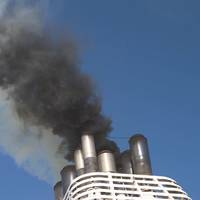
The International Maritime Organization’s proposals to reduce sulfur levels in marine fuels to a maximum of 0.5 percent m/m (mass/mass) by 2020 may prove to be controversial, having met with various responses from major shipping organisations and other bodies. The decision to implement the proposals by 2020 was taken by IMO, the regulatory authority for international shipping, during its Marine Environment Protection Committee (MEPC 70) meeting, which was held in London, UK in October 2016, and represents a significant reduction from the 3.5 percent m/m global limit currently in place.
Exhibition on Risk of Oil Pollution from Ships
The International Group is collaborating with the International Maritime Organization (IMO), International Oil Pollution Compensation Fund (IOPC) Funds and other industry organisations to produce an exhibition at the IMO to mark the achievements of the international community over the past 50 years to achieve a sustained reduction in major oil spills from ships; to establish effective systems for preparedness and response if there is an incident; and to create a comprehensive mechanism for providing compensation. In 1967, the grounding of the Torrey Canyon focused the world's attention on the risks and environmental impact of major marine oil spills.
IMO Sets 2020 Date for Ships to Comply with Emission Requirements
In a landmark decision for both the environment and human health, 1 January 2020 has been set as the implementation date for a significant reduction in the sulphur content of the fuel oil used by ships. The decision to implement a global sulphur cap of 0.50% m/m (mass/mass) in 2020 was taken by the International Maritime Organization (IMO), the regulatory authority for international shipping, during its Marine Environment Protection Committee (MEPC), meeting for its 70th session in London. It represents a significant cut from the 3.5% m/m global limit currently in place and demonstrates a clear commitment by IMO to ensuring shipping meets its environmental obligations.
IMO’s MEPC Set to Adopt Polar Code Provisions
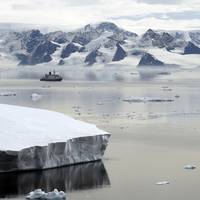
The Marine Environment Protection Committee (MEPC) of the International Maritime Organization (IMO) meets for its 68th session from May 11-15, 2015, at IMO Headquarters in London. Items on the agenda include the proposed adoption of the environmental part of the Polar Code and associated draft MARPOL amendments to make the Code mandatory; the implementation of the Ballast Water Management Convention; further work on air pollution and energy efficiency measures; and a proposal to extend the Great Barrier Reef and Torres Strait Particularly Sensitive Sea Area (PSSA) to parts of the Coral Sea.
New PIB Discharge Requirements
MO’s Working Group on the Evaluation of Safety and Pollution Hazards of Chemicals (ESPH 19), meeting at IMO Headquarters from October 21-25, has agreed to classify high-viscosity PIB (Polyisobutylene) as category X for carriage by ship, thereby prohibiting the discharge of cargo residues into the sea. The categorization and carriage requirements for high-viscosity PIB will be included in the annual MEPC.2/Circular on the Provisional categorization of liquid substances, usually issued by IMO on 17 December each year and will be proposed for inclusion in the next edition of the International Code for the Construction and Equipment of…





